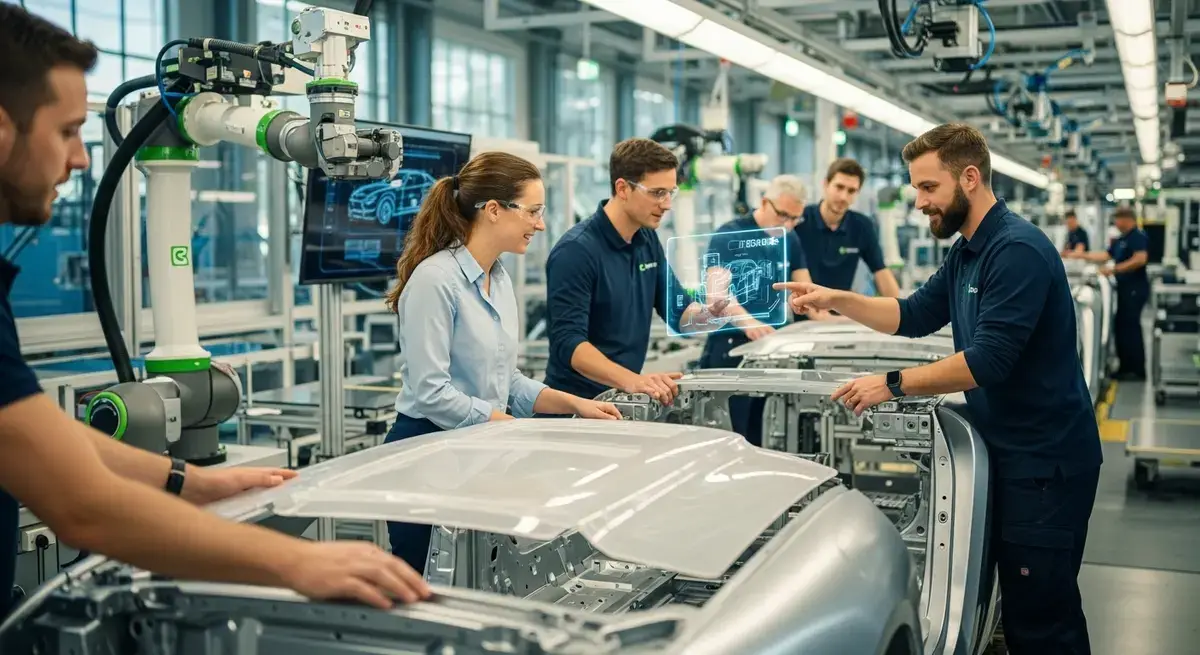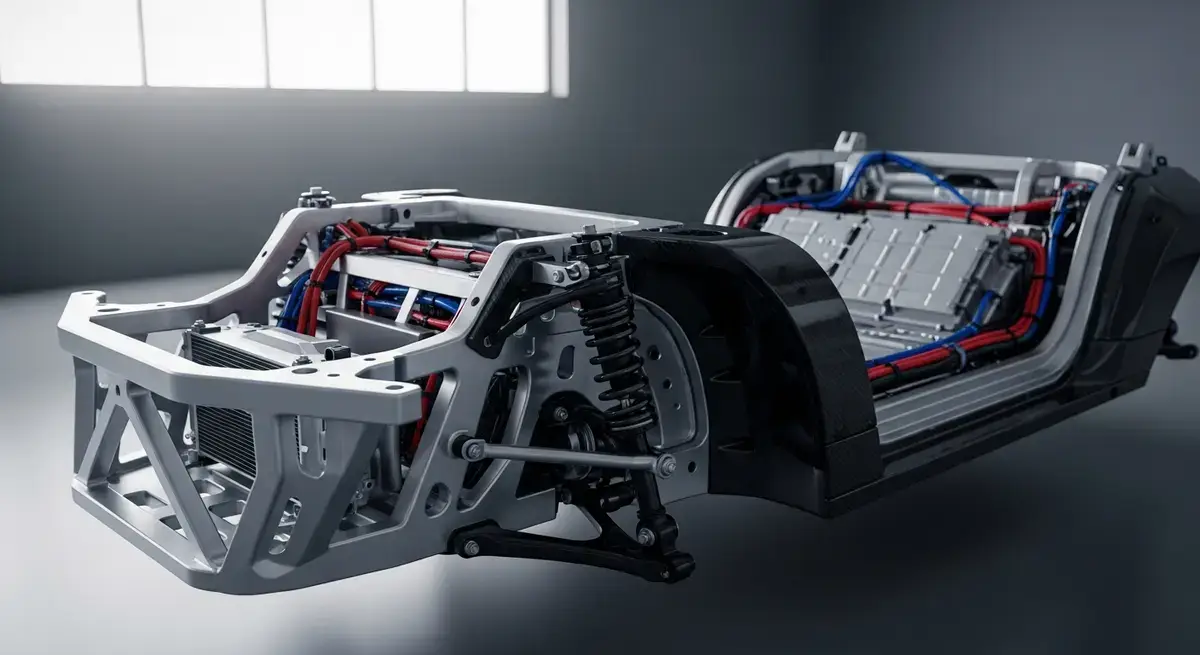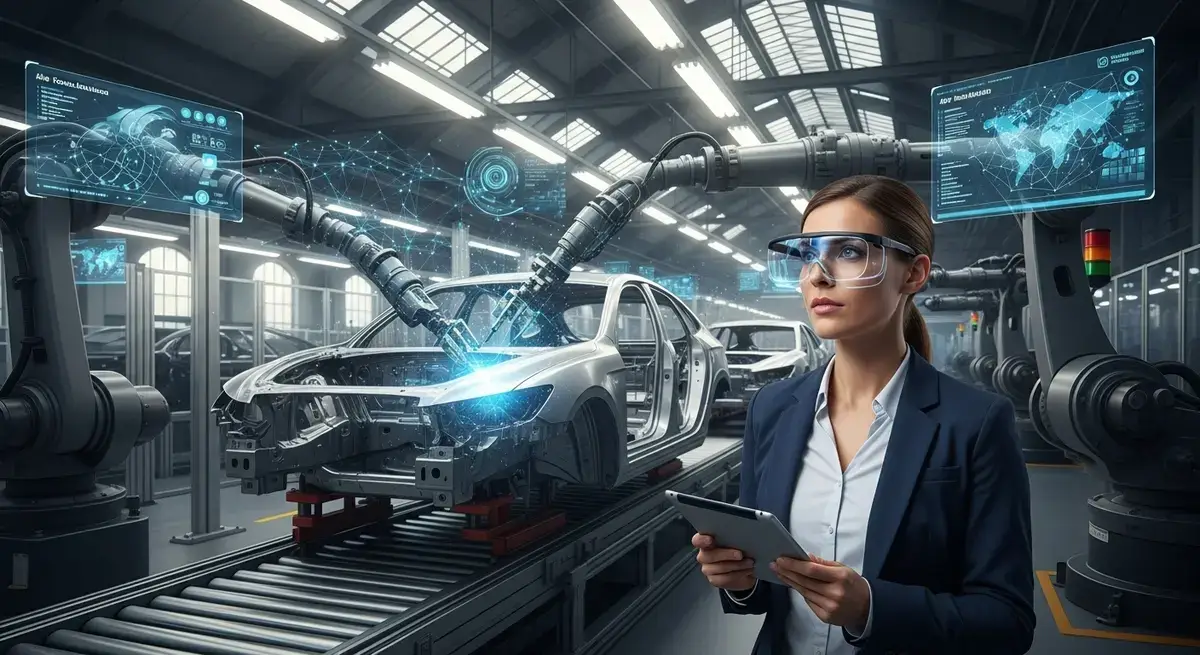
The future of sustainable manufacturing in the auto industry
Discover how the automotive industry is driving sustainability with eco-friendly materials, circular economy principles, and innovative manufacturing to cut emissions and meet green consumer demand.
Driving Toward a Sustainable Future: Innovations in Automotive Manufacturing
The automotive industry stands at a transformative crossroads, facing both significant challenges and exciting opportunities as it embraces sustainability. With growing awareness of environmental impacts, adopting sustainable manufacturing practices has never been more critical. This shift involves embracing circular economy principles, cutting carbon footprints, and incorporating eco-friendly materials—all essential not only to meet tightening regulations but also to satisfy consumers’ rising demand for greener vehicles.
Tackling the Environmental Footprint of Transportation
Transportation accounts for nearly 24% of global greenhouse gas emissions, making it a major contributor to climate change. In response, initiatives like the European Green Deal have set bold targets to slash emissions by 2030 and achieve climate neutrality by 2050. These goals highlight the urgent need for automotive manufacturers to adopt sustainable practices and innovate responsibly.
Navigating Regulations for a Greener Industry
Governments worldwide are stepping up with regulations to ensure automakers prioritize environmental and social responsibility. Laws such as the German Act on Corporate Due Diligence Obligations and the Corporate Sustainability Due Diligence Directive enforce strict standards on environmental protection and human rights within supply chains. Compliance with these frameworks is now a vital part of any manufacturer’s sustainability strategy.
Eco-Friendly Materials Steering the Industry Forward
The Rise of Bioplastics in Vehicle Production
Bioplastics, made from renewable resources like corn starch and sugarcane, are gaining traction in automotive manufacturing. These materials offer the dual benefits of biodegradability and a significantly smaller carbon footprint compared to conventional plastics. As the industry seeks innovative solutions, bioplastics are proving to be a promising alternative for more sustainable vehicles.
Recycling: Closing the Loop with Recycled Metals
Incorporating recycled steel and aluminum significantly reduces the environmental toll of vehicle production. Leading automakers such as Ford and Volvo have demonstrated how recycled materials can cut resource consumption and waste, reinforcing the circular economy within the automotive sector. These efforts pave the way for more sustainable manufacturing cycles.
Embracing Lightweight Materials for Efficiency
The shift toward lighter materials is transforming vehicle design. By using advanced composites and lightweight metals, manufacturers improve fuel efficiency and lower emissions—benefiting both the environment and drivers. This trend aligns closely with regulatory pressures and the demand for greener cars.
How Consumer Choices Are Shaping the Market
The Growing Wave of Green Consumerism
Environmental awareness is reshaping consumer preferences, with more buyers seeking eco-friendly vehicles. This surge in green consumerism is compelling manufacturers to prioritize sustainability in their products and practices. Meeting these expectations is becoming a key factor in market success.
Sustainability as a Business Advantage
Sustainable manufacturing isn’t just good for the planet—it’s smart business. Investing in eco-friendly practices attracts environmentally conscious customers and unlocks new economic opportunities, from job creation to expanding markets. As demand for sustainable materials grows, automakers stand to gain a competitive edge by leading in this space.
Embracing Circular Economy Principles for Lasting Impact
What is the Circular Economy and Why It Matters
The circular economy focuses on maximizing resource use through recycling and reuse, minimizing waste along the way. In automotive manufacturing, applying these principles is essential for building a more sustainable future. Companies like BMW and Toyota are pioneering this approach, integrating circularity into their production lines.
Innovations Paving the Road Ahead
The future of automotive manufacturing shines bright with cutting-edge innovations. Technologies such as bio-based composites and fully recyclable vehicles promise to further shrink environmental footprints. Coupled with new mobility solutions, these advancements are set to revolutionize sustainable transportation globally.
Sustainable automotive manufacturing is no longer just an ideal—it’s becoming the industry standard. By embracing eco-friendly materials, innovative technologies, and circular economy models, automakers are driving meaningful change for the planet and generations to come. Choosing sustainable vehicles and supporting green initiatives helps accelerate this vital journey toward a cleaner, greener future.

Alex Ryder
Alex lives and breathes cars. He delivers engaging, hands-on reviews of the latest models, combining technical knowledge with a pure passion for the driving experience. His articles are for enthusiasts who want to know how a car truly feels on the road.
More Related Posts

The role of lightweight materials in modern vehicle design
Lightweight materials like aluminum, carbon fiber, and high-strength steel are revolutionizing vehicle design by boosting fuel efficiency, cutting emissions, and enhancing safety in modern cars.

How AI is revolutionizing automotive quality control
Discover how artificial intelligence is revolutionizing automotive quality control with smarter inspections, predictive maintenance, and digital twins—boosting defect detection and manufacturing efficiency.

The future of sustainable manufacturing in the auto industry
Discover how the automotive industry is driving sustainability with eco-friendly materials, circular economy principles, and innovative manufacturing to cut emissions and meet green consumer demand.

Key cybersecurity challenges for connected vehicles
Connected vehicles face growing cybersecurity risks due to constant data exchange and V2X communication. Learn key challenges and strategies to protect privacy, ensure safety, and secure the future of smart transportation.
